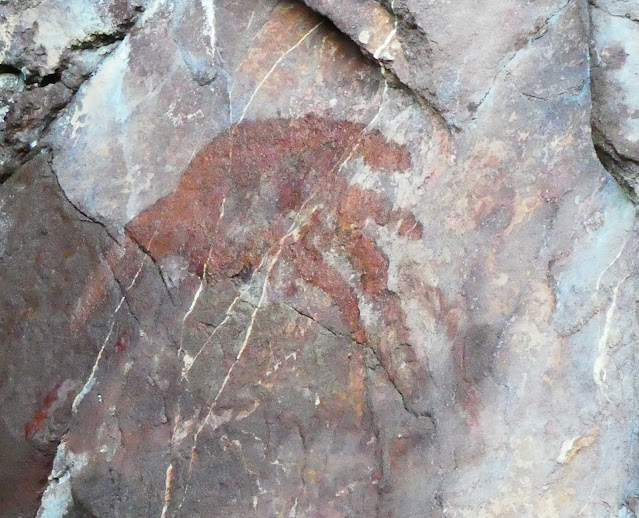Thoughts, Drafts, Scribbles
Notes, jottings, aides-memoire, lecture and textbook references, anything interesting and even remotely relevant to the whole project. In no particular order, presented in in notebook format. Proceed with caution: herein revealed the workings of a creatively fluid mind...
Hybridity as a theme: of the gods, the human/animal characters, the work itself. What 9-year old (or over 40-year old) isn't fascinated by an endless procession of ancient Egyptian characters with dog, crocodile, bird, lion, goat heads? The more animalistic the form, the more primal it may be. The early gods were not yet distinct from man and animal, the view of primitive mythography cited by Lévi-Strauss.
Otherness. Other beings, other realities, other narratives...other selves. Other voices (the poet, the editorial voice, the voices of the individual characters, the voices of peoples and nations - through their songs, myths). Other possibilities - of a time and place that never were, yet in a sense still are, as they are described, given mental form by words on pages. cf. the logical step taken by Parmenides "from 'it is there to be thought of' via 'it is there to be' to 'it is'...How do we succeed...in talking...about unreal or impossible things like unicorns or round squares?...One cannot refer to what is not there to be referred to..." (E. Hussey, The Pre-Socratics, London, Duckworth, 1974, p. 85). Hence to speak of a dragon will produce very differing responses in a listener, whether they are a European Christian, or a Chinese non-Christian.
All dragons are mythical. But some are more mythical than others.
Language and its use creates form from the formless. We all understand the concept of a unicorn (and a dragon) because while they themselves are sadly now extinct (hunted to death by non-believers), the discourse and body of knowledge that exists about them is very much real (see Steve Fleetwood's presentation on critical realism).
 |
| Tolkien on archaisms and framing in fairy-tales |
Issues of editorial authority and the sense of a presence behind the text itself (what is 'outside the text'??). A text about text. Who is the narrator/poet? When Womba (and hence the reader) first meets Sigfri Far-Treader, the Widsith-like storyteller - he should be blurry, nebulous, his identity spurious (we have only his word for it that he is who he says he is, has been where he says he has been, etc. But then we have only any narrator's word for it that anything they describe ever happened at all). Hence an editorial footnote: "The identity of the poet [Sigfri] has never been historically confirmed by any other contemporary or subsequent source, and is therefore assumed to be pseudonymous".
Skróth fulfils both the Western dragon tradition (baneful fire-breather, destroyer) and the Eastern (divine, immensely wise/powerful/ancient, gifted with both wisdom and speech - and a rival to the gods themselves. Is this a spoiler?)
Deor's diaries as left to his daughter are "half-told tales by an untold teller" - Womba will write her own ending, once she deciphers the riddles within his writings (runic interpolations a la Cynewulf??)
Re: the Old Norse. 'seithr'- shamanistic form of magic deemed unmanly (Odin gets grief for it). This or something like it to be the Ylfish manner of casting illusion (as well as their negative, hurt-causing power) - see Alaric Hall pp. 144-8 on gender transgression. The Ylfu again as the dualistic opposite of the Ulfish, whose women have sole authority on matters of magic, ritual and religion (cf. ancient Athens?).
 | |
| Lecture notes and inspirations - animism and animist ontologies. Love the 'man with dog's head' works...very ancient Egyptian. Also remind me of the kind of sci-fi action figures I grew up with. |
Started thinking about the idea of 3D printing 'action figure' versions of my characters a la Janek Simon. Pros: Toys! Things to sell! Cons: Workshop access, little time to design and build an actual articulated figure (as otherwise is just a copy of Simon). Dammit. Would have been an interesting spin on the Takeshi Murakami 'commodification' of art, too.



Comments
Post a Comment